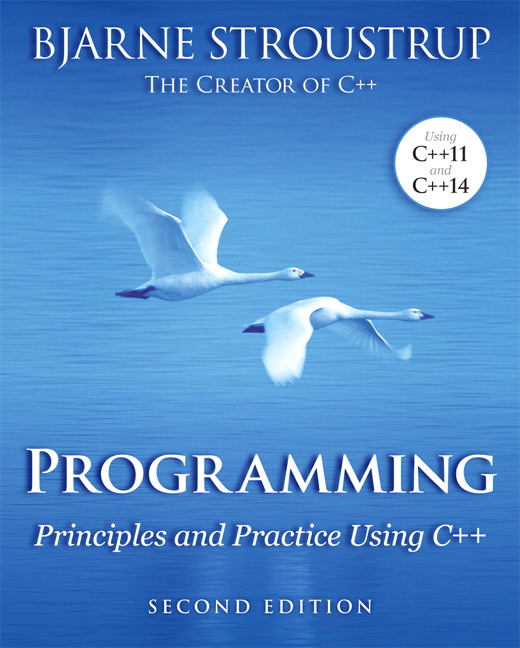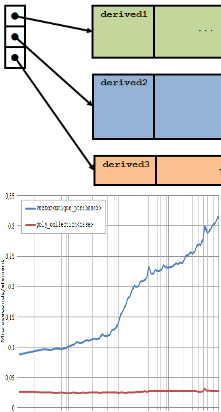Introducing emplacer -- Tim
Another nice way to have a polymorphic collection without sacrificing that performance-precious contiguous memory layout:
Introducing emplacer: allocate subtypes of an abstract base class directly in a container
by Tim
From the article:
So I complained to my friend Jeremy that C++ should be able to do this. This isn't Java, I shouldn't have to do a separate allocation for each object...
As alluded to earlier, you can also use it in containers. Here's an example:
std::vector<ShapeAny> shapes; shapes.emplace(shapes.end())->emplace<Rect>(3, 4); shapes.emplace(shapes.end())->emplace<Square>(3); //emplace returns reference to *this, so you can use it like this too shapes.push_back(ShapeAny().emplace<Rect>(5, 6)); shapes.push_back(ShapeAny().emplace<Circle>(1)); for (auto shape: shapes) { std::cout << shape->area() << std::endl; }


 Stroustrup's introduction to programming book has now been updated for modern C++. The Preface was posted on InformIT:
Stroustrup's introduction to programming book has now been updated for modern C++. The Preface was posted on InformIT: Note that the article doesn't mention
Note that the article doesn't mention  On the theme of "contiguous enables fast":
On the theme of "contiguous enables fast":